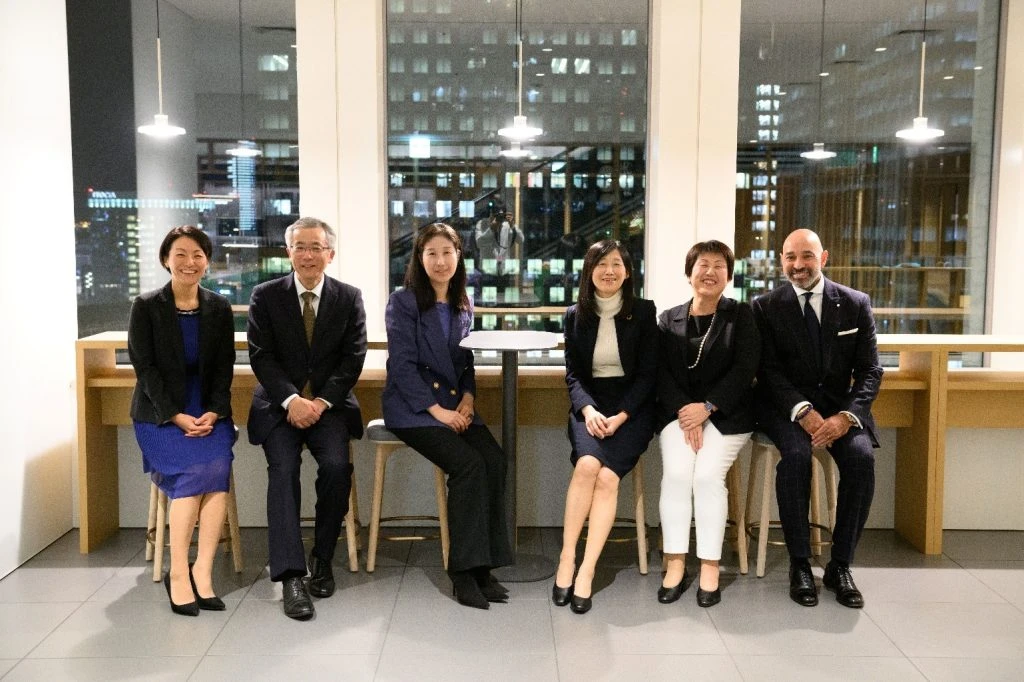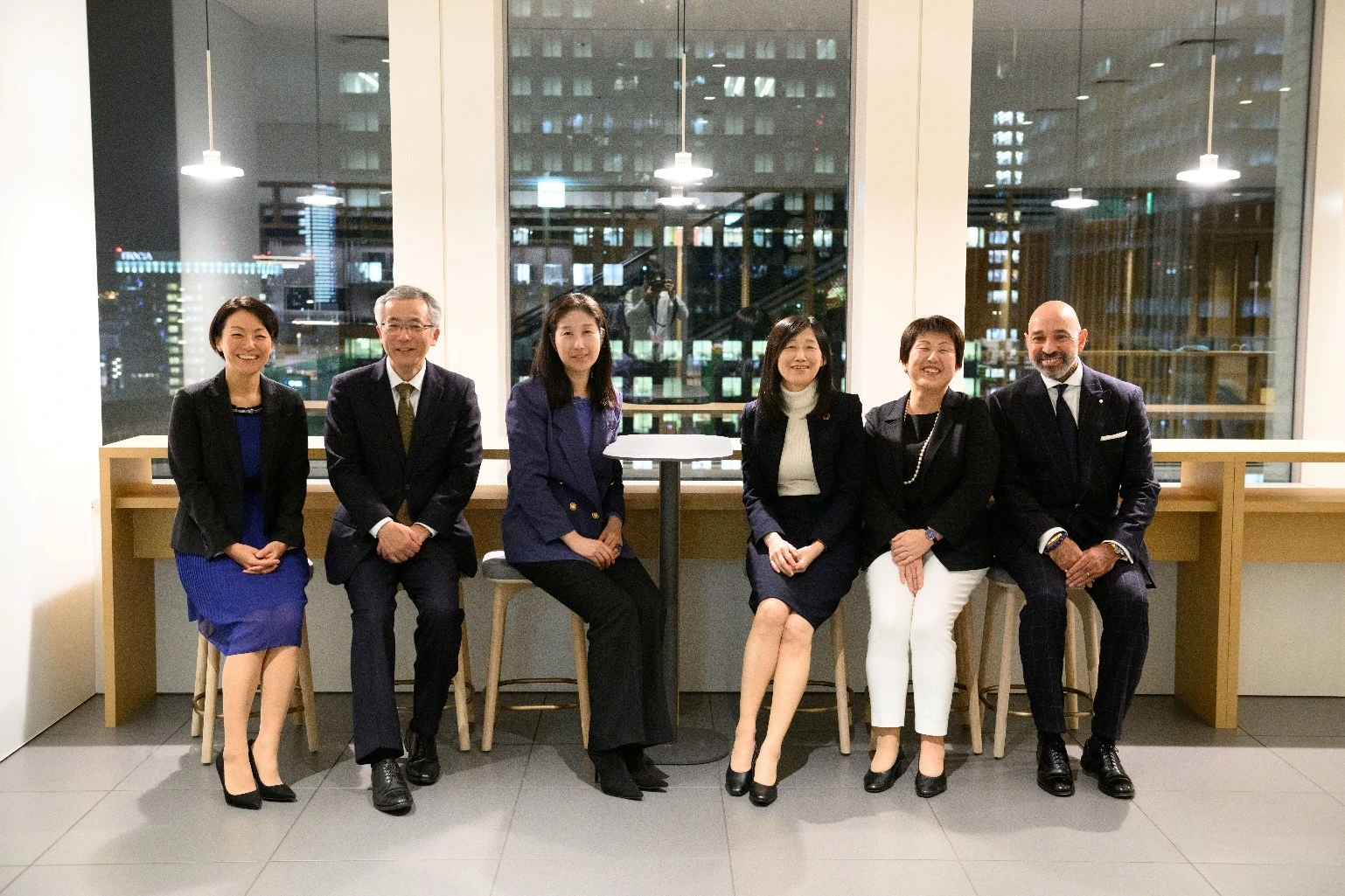Fast Forward: Transformative technology in the evolution of the buy-side
November 08, 2024
Our Fast Forward series explores how the buy-side leverages transformative technology to prepare for the next chapter of the industry.
Fast Forward with Rieko Shimojo, Executive Vice President and Chief Operating Officer at Bayview Asset Management
In this edition, we speak to Rieko Shimojo, Executive Vice President and Chief Operating Officer at Bayview Asset Management, an independent multi-boutique asset management firm.
Enhancing the Human Element in an Age of Fintech Disruption
Rieko oversees a wide range of critical functions throughout her buy-side career and is currently focused on building a team adept at leveraging both financial expertise and technical proficiency to deliver exceptional value to clients. She is excited about the synergy between human ingenuity and technological advancements, viewing the ability to strike a balance with innovation—while staying grounded in traditional financial principles—as paramount to success.
“While acknowledging the immense power of technology in improving research and analysis, we still require human expertise in the investment process. Technology provides us with the tools to augment—not replace—human decision-making.”
Make it happen here.


I joined Bayview Asset Management more than 20 years ago and have witnessed the firm’s exceptional growth and quadrupling of team strength. I currently oversee our in-house equity and global asset allocation teams to ensure the efficacy of our investment strategies, and head up a range of critical functions such as legal and compliance, as well as IT and information security.
The buy-side revolution
How COVID-19 Accelerated Japan’s Technological Shift
The COVID-19 pandemic significantly changed work styles for us. While remote work practices may be more commonplace in other countries, in Japan we are normally more accustomed to the traditional office environment and face-to-face interactions.
Such a shift presented both challenges and unexpected opportunities, accelerating the adoption of new technologies as we implemented nationwide changes to our business practices. We advanced towards a digital-first approach for back-office functions such as document processing, which was heavily reliant on outdated methods such as faxes.
Progressing from the pandemic, the likes of BloombergGPT and other Large Language Models (LLMs) have the potential to transform the finance industry. Since a significant portion of communication in our industry still occurs through text rather than numbers, LLMs are expected to offer a revolutionary approach to financial analysis as they go beyond quantitative analyses. By leveraging text-based features across multiple languages and translating raw data and complex analyses into easily comprehensible text, there will be a wealth of valuable insights presented into clear and conversational language to a wider audience of investors.
New Technology and Human Augmentation in Finance
LLMs can automate repetitive tasks and process vast amounts of data with high accuracy, significantly boosting operational efficiency and reducing human error. By offering a powerful first layer of application for our investment professionals, LLMs also help free up valuable human resources for more strategic activities. We can now enhance our capabilities and efficacy by accessing and synthesizing information from a wide range of sources to get a broader and deeper understanding of market trends, company fundamentals, and emerging issues.
Analysts can also tap the immense power of LLMs to more swiftly and accurately evaluate investments into companies and their ESG (environmental, social, and governance) initiatives, as well as enhance stock screening across diverse markets by identifying potential investment opportunities based on specific criteria. Artificial intelligence (AI) is also adding another layer of benefit to LLMs with its ability to generate text and forecasts, as seen with chatbots and stock prediction models. Its value can potentially be applied to stock trading.
While acknowledging the immense power of LLMs and AI in improving research and analysis, we still require human expertise in the investment process. Technology provides us with the tools to augment—not replace—human decision-making. We are excited to explore the full potential and advanced applications of LLMs in collaboration with leading industry players like Bloomberg.


A Digital-First Approach to Meeting Investor Demands
As investor preferences are evolving rapidly, technology or more specifically the digital transformation (DX) will help us stay ahead of the curve in anticipating client needs. Younger investors are more tech-savvy and usually favor app-based investment solutions, increasingly prioritizing efficiency and data-driven decision-making. We are also changing the way we engage directly with such investors by exploring digital marketing initiatives for our funds. This represents a significant departure from the traditional Japanese model, where broker-dealers handle investor-facing distribution roles while asset managers stay as single-minded manufacturers.
We have also partnered with a fintech company to create a truly unique and user-friendly experience for our investors, embracing technology solutions such as digital marketing and online subscriptions, as well as availing the online disclosure of all Net Asset Values (NAVs), portfolio holdings, and other relevant information. We keep Japan’s Financial Services Agency (FSA) in close loop as we pioneer this new innovative model in the Japanese individual investor market to ensure close alignment with regulatory requirements.
We recognize that investor needs extend beyond automation. By pioneering a direct-to-investor model with a strong digital foundation, we aim to address the broader issue of lagging DX in Japan by fostering innovation and progress within the investment management industry.
Catering to a Diverse and Evolving Investor Base in Japan
Our firm has traditionally focused on serving institutional investors who have a higher risk tolerance. However, with a shifting landscape, we are actively expanding our scope to cater to individual investors as well, presenting both exciting opportunities and unique challenges. There is a spectrum of investor savviness and experience amongst individual investors who have more specific needs and preferences, including those who still subscribe to the more conventional methods of savings in Japan.
The Japanese government and some market observers have called for increased sophistication within the Japanese asset management industry. This push for advancement is crucial, but it is not a one-size-fits-all approach and must be balanced with meeting the needs of individual investors who have very diverse skillsets and risk appetites. We need to cater our communication styles to individual investors as complex investment concepts must be explained clearly and concisely to ensure they make informed investment decisions. We must be prepared to navigate the evolving asset management industry in Japan with a dual focus: pursuing advanced investment strategies while developing robust investor education initiatives.
I am heartened to play an active role as an executive founding member of Bloomberg Women’s Buy-Side Network (BWBN) in Japan, which constantly pushes boundaries and achieves collective progress through collaboration and innovation within the industry. One of BWBN’s initiatives is to foster financial literacy and empower Japan’s next generation of leaders by equipping them with the essential technical skills needed for tomorrow. This is very much aligned with how our firm is prioritizing critical technical skillsets as we build our future workforce. We envision a team adept at leveraging both financial expertise and technical proficiency to deliver exceptional value to our clients.
Industry regulations
Navigating Japan’s Crypto Regulatory Landscape
Our firm’s core client base of professional investors includes pension funds and financial institutions. It is important for us to remain at the forefront of regulatory developments within the asset management industry in Japan. At the same time, we all have the shared responsibility of upholding ethical practices, a key focus for the Japan Investment Advisers Association (JIAA), at which I am one of the twelve Member Directors since 2019.
Japan has established itself as a leader in cryptocurrency regulation, proactively amending its legislation of Payment Services Act in 2016 to regulate crypto asset exchange service providers. This demonstrates the willingness of the Japanese government and the FSA to adapt to the emergence of new asset classes such as digital assets.
As the digital asset landscape continues to evolve, industry players must stay abreast of regulatory developments to fully leverage the potential of this technology within the broader financial ecosystem.


The Importance of Cybersecurity
In Japan, the National Center of Incident Readiness and Strategy for Cybersecurity (NISC) has identified 15 critical infrastructures which require robust cybersecurity safeguards. This includes the financial industry, traditionally viewed as a leader in this area, with its strong cybersecurity measures within major banks. However, security in this sector needs to be further fortified, an area that is also discussed as one of the agendas at the JIAA as we explore a unified approach to boost cybersecurity in Japan.
In response to Japanese government’s current attempt to promote shifts from savings to investment nationwide, asset management firms are poised to play an increasingly prominent role in the financial ecosystem as they play a vital role in safeguarding client assets, and the level of cybersecurity vigilance needs to correspondingly level up to mirror that of banks. Our day-to-day trading activities, which extend beyond traditional custody and record-keeping practices overseen by banks, require stringent cybersecurity measures to mitigate potential threats. By fostering knowledge sharing across sectors, we can leverage cybersecurity best practices to collectively build a more robust and resilient financial ecosystem.
Within our firm, we leverage the security operations center (SOC) services of a leading Japanese system vendor who has expertise in monitoring and protecting a broad range of companies across diverse industries. This cross-industry collaboration allows for valuable threat intelligence sharing, enabling us to learn from the experiences of others and proactively address emerging cyber risks.
Talent management and skills development
Seeking Curious Minds
The ability to utilize programming languages will be a valuable asset for future generations entering the workforce. Even as such skills becoming increasingly relevant within the financial sector, technical proficiency alone is not enough.
Beyond specific skillsets, we are fostering a culture of continuous learning in the firm as we build a team of individuals with an intrinsic motivation to learn. Such team members possess a genuine curiosity and strong desire to master new skills, systems and technologies so that they can stay abreast of the latest advancements and effectively integrate them into existing workflows.
This ability to strike a balance with innovation—while staying grounded in traditional financial principles—is paramount to our success.
Empowering Employees with Future Proof Skills
It is important to structure learning and development initiatives that prepare our workforce for a future of transformative technology.
The resulting synergy between human ingenuity and technological advancements can result in converting traditionally cumbersome back-office work into more engaging and stimulating tasks. By empowering staff to explore the potential of new systems and technologies, we can foster an environment where they actively participate in creating efficient and innovative workflows.


Looking back … and Fast Forward
Even though I have not personally experienced gender-based challenges in my career, I am mindful that many talented individuals, particularly women with familial responsibilities, continue to face such obstacles within the financial industry.
While industry-wide systemic changes are crucial, a personalized approach is just as, if not more, effective. By tailoring our support and initiatives to individual needs and circumstances, we can empower our colleagues to thrive regardless of gender or cultural differences.
We are committed to fostering a truly inclusive work environment and building a diverse team of differing backgrounds and perspectives. For example, to harness the power of data science as a transformative tool, our firm is now in the process of establishing a dedicated team of data scientists tasked with developing innovative systems and technologies to revolutionize our work processes. We aspire to not only solve current challenges but also anticipate, and proactively address, future industry issues.
Creativity and innovation can be fuelled when employees see that they are valued and empowered to contribute their unique talents. By demonstrating that one can make meaningful contributions regardless of background, we can encourage others to pursue their own aspirations within the financial services industry.